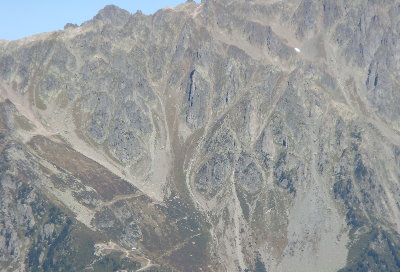Western Europe has taken up the environmental issues seriously. There’s the “Smart” electric cars, public cycles available for use for anybody (as in France), recycling hand towels in restrooms (or washrooms as its called in Europe), energy conservation as exemplified in the cog wheel trains, alternate energy usage in high altitude tourist spots like Mt. Blanc and Jungfrau, energy conserving buildings like the “Gherkin” (“Swiss Re Tower”) a cigar shaped building in London. It’s all for the greater good. Hope these efforts continue vigorously and are also adopted in other parts of the world. Because, as individuals we are expected to contribute to this conservation effort in our diurnal routine and THAT is extremely difficult.
Environmental conservation is great on paper but when you actually implement it, it means you might have to give up on some of the comforts you take for granted. Environment friendly transit systems or buildings etc. are great – we do not make personal sacrifices or so we feel. We have grown up with so many comforts – we do not realize that sans those facilities how it would be. Usage is based on “as much as you want” and not “as much as you need”. So there is the liberal use of toilet paper and hand tissues, plastics and Styrofoam – found in almost all containers/packaging from food & beverage to electronics & toys, big cars which are such gas guzzlers, 24 hour air conditioner or heater (whether the room/area is occupied or not), the examples can go on. Now to counter these we would have the recyclable hand tissues, use less toilet tissue, carry our own jute or cotton bag every time we go for groceries, give up the SUV and take up a hybrid like the “smart” car. The electric car with its tiny size and low speed is nowhere near the SUV. You would have to give up the convenience and the luxury.
What is the motivation for people to do so? Apart from the environmental issue being a fashionable cause to take up (since lot of celebrities are in the bandwagon) what else could induce a commoner to take it up? Umm…maybe children. Maybe people might feel that they need to conserve for the future generations. But then that is way too ahead – nobody alive today would be around then. Since the after affects are not physically manifested immediately in front, it is difficult for people like me to fathom out the impending crisis.
On my visit to the French Alps, near Mt. Blanc, I met somebody who had been travelling to this place for the past ten years. He pointed to a bare brown mountain peak and said “ten years back that peak used to have snow. Today to reach the snow we have to trudge further up the range”. That is when it struck me that indeed the affects of the much touted global warming is clearly visible. But sitting in my apartment with the city view outside I never could really appreciate all the lectures, movies and documentaries the environmental activists are seen presenting on television.

For instance if a person has an allergy to something (say peanuts) where he gets a skin rash or swollen lips immediately, he would go to all lengths to not touch the ‘vile thing’! But say he is asked to control fat/oil intake, he most likely wouldn’t pay that much attention since the affects do not manifest itself immediately. It would be a slow process of cholesterol accumulation and eventually a few years later resulting in a stroke. Then he would probably give up the butter!
I really wish to participate in the conservation process but am I ready to give up the “butter”, am I ready to sacrifice the instant gratification for a benefit which is not immediately tangible – I was sure I was not ready until I saw that peak in the Alps. And for this “enlightenment” I needn’t have crossed the Atlantic – am sure I could have got the signs here.
Let us make a small check list on what we could do as an individual to preserve and conserve the environment. Let’s look at few things we could do –
1) Use less plastics
2) Use less non-bio-degradable disposables
3) Avoid wastage of paper – includes all kind of tissues
4) Use air conditioner / heater judiciously
5) Not waste running water – for e.g. do not leave the water running while brushing teeth; open / close tap as required
6) Use energy saving light bulbs
7) Use energy saving and low emission cars (e.g. electric / hybrid cars?)
8) Recycle as much as possible
9) Walk/cycle/take public transport/car pool to work
10) Aim to generate as much less household garbage as possible
Woah!! Is it possible to do all of these? Do all those celebrities (including Al Gore!) go to such lengths? So now we have progressed so much that we need to take a few steps back, is it? It is difficult indeed. I wonder if there are more people who feel the way I do- wanting to do something about this, yet not wanting to give up on the conveniences.
